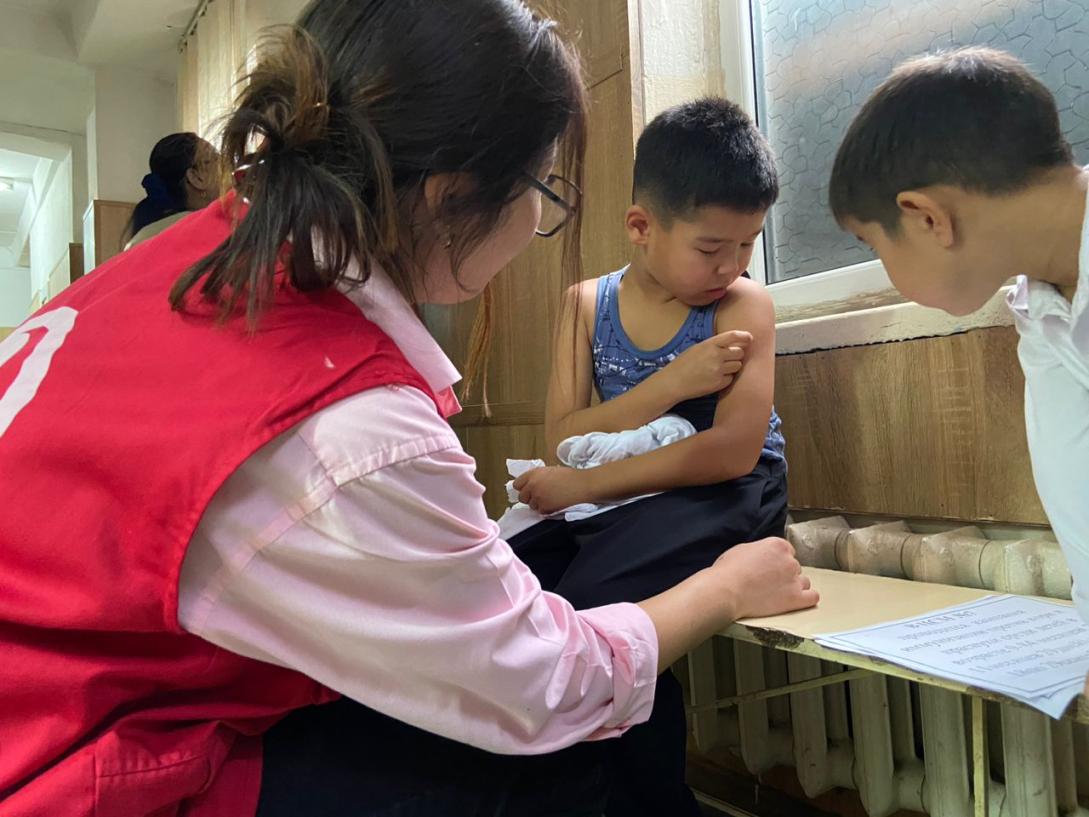European Union provides funding to mitigate the impact of measles in Kyrgyzstan

This EU funding will support the Red Crescent Society of Kyrgyzstan (RCSK) in alleviating the impacts of the ongoing increase in the measles cases in the country. The operation seeks to address critical gaps in immunization coverage, improve community awareness, and provide targeted interventions to reduce the spread of measles in high-risk areas. The intervention will focus on vulnerable children and other groups that have reduced access to immunisation services.
The funding is part of the EU’s overall contribution to the Disaster Response Emergency Fund (IFRC-DREF) of the International Federation of Red Cross and Red Crescent Societies (IFRC).
Kyrgyzstan has since the beginning of 2025 seen a sharp increase in measles cases, with 4,055 classified cases reported as of 18 March, according to the Ministry of Health. Being the country’s most densely populated city, Bishkek has so far been hardest hit, with over 2,500 cases reported. Over 80% of the cases have been reported in children under nine years old.
The country has faced significant spikes in measles cases in recent years, largely driven by misinformation and vaccine hesitancy. In 2024, 24,380 confirmed cases were reported whilst 7,046 cases of measles were confirmed in 2023.
Background
The European Union and its Member States are the world's leading donor of humanitarian aid. Relief assistance is an expression of European solidarity with people in need all around the world. It aims to save lives, prevent and alleviate human suffering, and safeguard the integrity and human dignity of populations affected by natural disasters and man-made crises.
Through its Civil Protection and Humanitarian Aid Operations department, the European Union helps millions of victims of conflict and disasters every year. With headquarters in Brussels and a global network of field offices, the European Union provides assistance to the most vulnerable people on the basis of humanitarian needs.
The Disaster Response Emergency Fund was established in 1979 and is supported by contributions from donors. Each time a National Red Cross or Red Crescent Society needs immediate financial support to respond to a disaster, it can request funds from the IFRC-DREF. The delegation agreement between the IFRC and the EU enables the latter to replenish the IFRC-DREF for agreed operations within its humanitarian mandate up to a total of €12 million in 2025.
For further information, please contact:
Lisa Hastert, Regional Information Officer for Asia and the Pacific, European Civil Protection and Humanitarian Aid Operations (ECHO): lisa.hastert@echofield.eu
Mallika Panorat, Information and Communication Assistant for Asia and the Pacific, European Civil Protection and Humanitarian Aid Operations (ECHO): Mallika.Panorat@echofield.eu.
